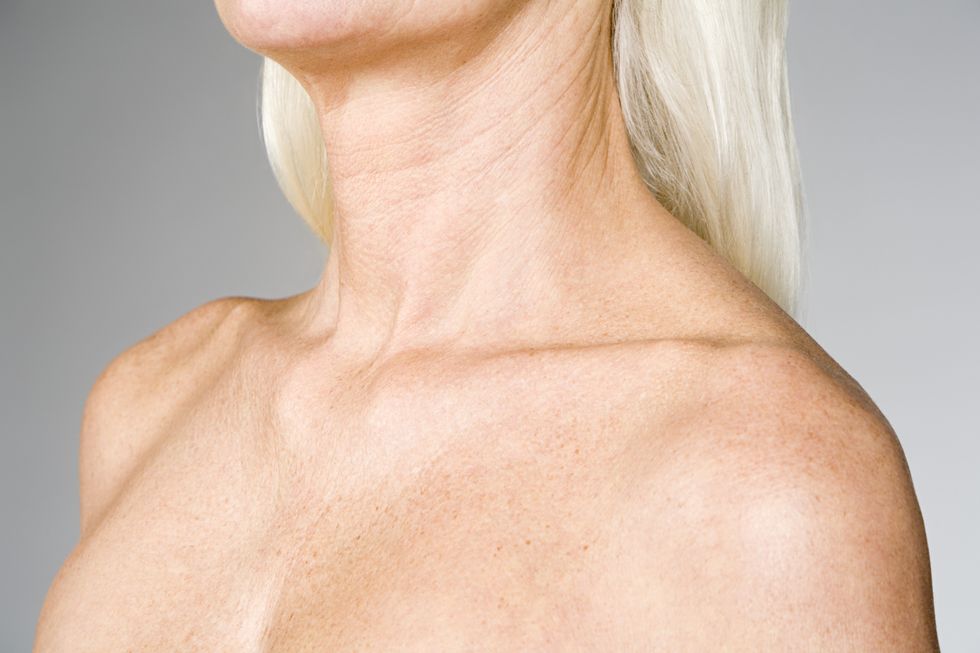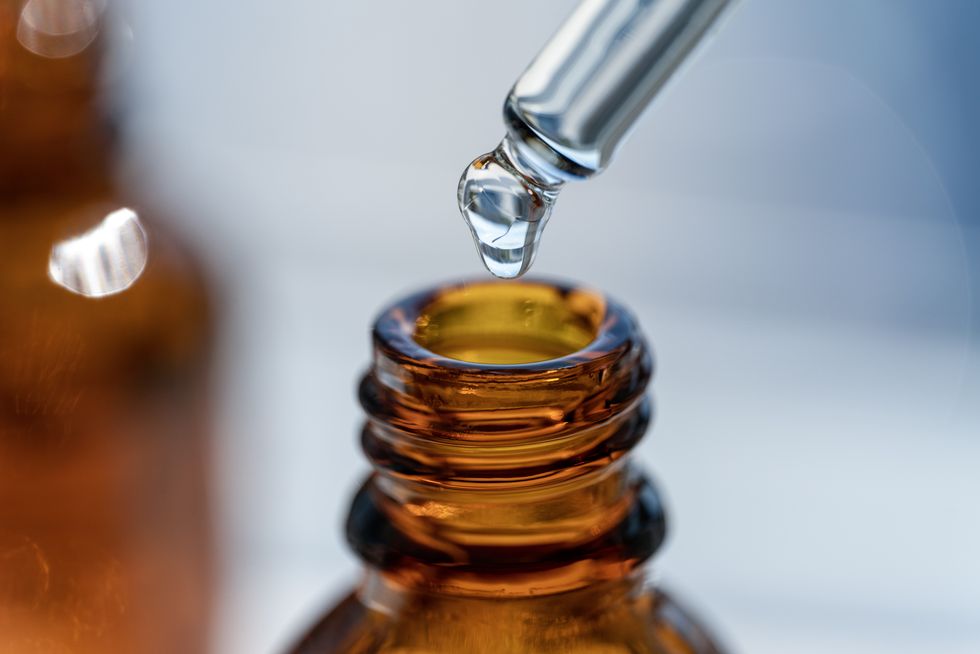Two specialists have shared their top tips for addressing crepey skin
Don't Miss
Most Read
Trending on GB News
Crepey skin is a common condition characterised by a thin, wrinkled texture similar to crepe paper, affecting many people as they age.
Fortunately, skin-firming practices can delay its onset, but only when UV protection is taken seriously, according to skin care experts.
Valerie Aparovich, biochemist and certified cosmetologist-esthetician at OnSkin, explained that ageing causes structural and hormonal changes affecting skin texture.
"As we age, the body undergoes structural and hormonal changes impacting skin texture. Collagen and elastic fibre synthesis slows down inhibiting skin cell regeneration processes," she told GB News.

Poor habits can accelerate the development of crepey skin
GETTY
This leads to skin losing "its firmness and suppleness and appear thinner, laxer, more flabby, and wrinkling- and sagging-prone," according to Aparovich.
In essence, a drop in natural ceramide and hyaluronic acid levels weakens the skin's moisture barrier, reducing its plumpness.
Additional factors like UV exposure, however, are major components in the development of crepey skin.
"UV rays from the sun and tanning beds provoke photoaging, drastically accelerating the occurrence of the signs of ageing, including crepey skin," Aparovich explained.
She warned that air pollution also contributes to oxidative stress and degradation of the skin's antioxidant defences. Lifestyle choices have a lot to answer for too.
"Poor lifestyle choices and habits such as unhealthy diet, sleep deprivation, bad habits such as smoking and alcohol consumption, and continuous stress drastically affect skin youthfulness," noted Aparovich.
Caroline Livingstone, founder of BU Aesthetics, confirmed this, adding that significant weight fluctuations are another overlooked factor.
"Crepey skin, characterised by a thin, wrinkled texture, is primarily caused by ageing, sun damage, and a decrease in collagen and elastin production," she explained.
How to prevent crepey skin
Prevention is key to avoiding such changes in skin texture and experts recommend a tailored skincare routine as a promising line of defence.
"It's crucial to build your skincare regimen based on products tailored to your specific skin type," advised Aparovich.
Products with active ingredients like hyaluronic acid, collagen, ceramides, and plant-derived oils are beneficial.
Particularly antioxidant ingredients such as vitamins C and E, niacinamide, and coenzyme Q10, as they help combat free radicals from environmental damage.
Moisturising is essential to replenish water content in the skin, both internally and externally. So regular application is recommended.
"Dryness for any reason can cause crepey skin, therefore it's crucial to keep the body hydrated from within," Aparovich emphasised.
Humectants like glycerin and hyaluronic acid promote deep hydration by drawing water to the epidermis.
Emollients, such as plant oils and ceramides, will also prevent moisture loss and promote skin softness with regular application.
"The most commonly known emollients are plant-derived oils like karité shea butter, canola, almond, coconut," noted Aparovich.
LATEST DEVELOPMENTS

Humectants like glycerin and hyaluronic acid promote deep hydration
GETTY
Aparovich stressed that UV protection is non-negotiable for preventing crepey skin and recommended broad-spectrum sunscreen.
"The best overall solution is a broad-spectrum sunscreen with a no less than 50 SPF rating," she advised.
Staying in the shade during peak sun hours and wearing protective clothing also helps.
This crucial lifestyle habit, combined with a healthy diet, can do wonders for skin health over time, noted Aparovich.
She particularly highlighted the importance of antioxidant-rich foods, noting that "vitamins C, E, and A are fortifying antioxidants that help protect the cells from free radical damage".









